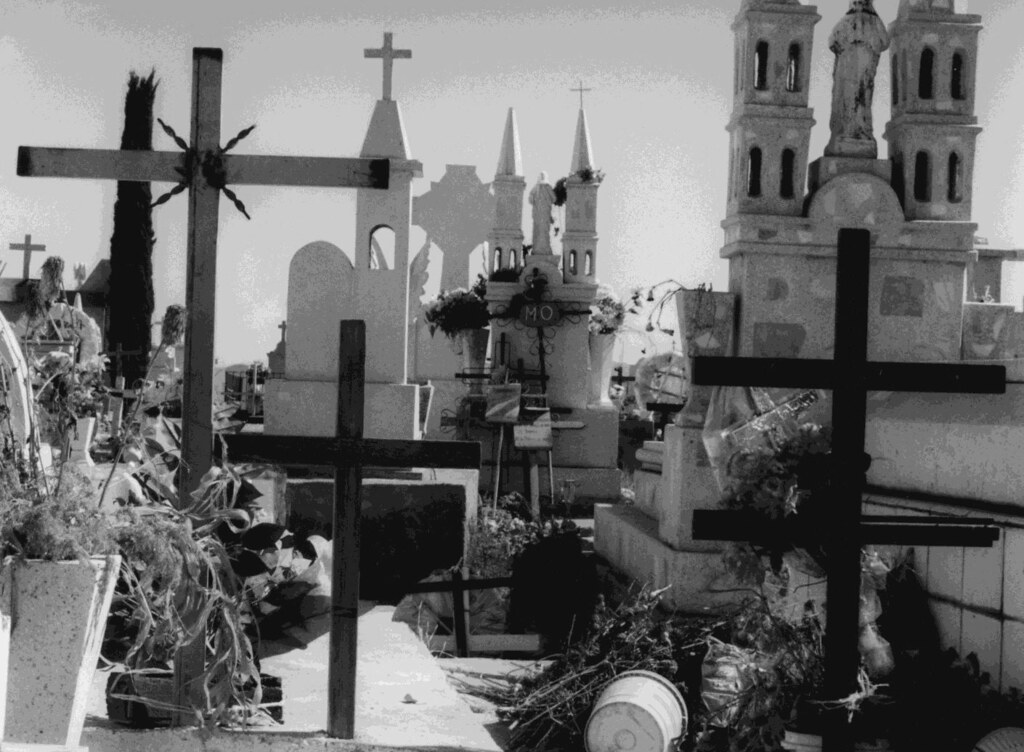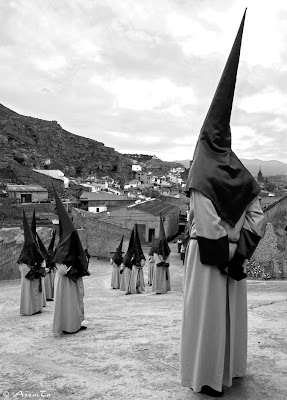Sensus Plenior

In the Philippines, October is the month of candies and frivolities, and November is the month of ghosts, witches and demons. It is on the first of November that tales of lost souls and hell-bound men are told; it is during the first week of the eleventh month that hell and spirits and death in general are discussed in the media, from radio to television to what have you. My early recollections of November revolve, primarily, on visits to the cemeteries with the whole family, spying on deserted, haunted mausoleums, and hearing stories to chill the blood of any child.
One of the most vivid of these memories involved myself listening to the arguments of some of my relatives a decade or so past. My great aunt Luisa attends Charismatic Catholic services; she waves her handkerchief in the air to receive God's blessings, and was a firm believer in the importance of emotions in the proper worship of God. Still, she was a cradle Catholic, having been born in the 1920s when the echoes of the Council were still undreamt, and the holy traditions still mattered. Her brother, my grandfather, died in 1987, a strict, if uncatechised, Catholic; however most of my aunts, and even my grandmother, left the Church to be 'born again' in the late 80s to the early 90s. Naturally, visits to the grave would have presented an obstacle to them.
I remember great aunt Luisa telling my grandmother how, some weeks before All Saints' Day, she was walking in her house to get something from the basement when a sudden gush of wind blew in, and whipped about her neck. She described the feeling as nothing short of chilling; she went over the list of her dead relatives, and suddenly remembered her brother Peregrino, my grandfather. She told my grandmother how it all made sense to her; I listened intently, wondering if this was supposed to be a ghost story. To remedy the situation, great aunt Luisa said a silent prayer for Peregrino, even offering a plate of food on the window sill to sate him on the way back to Purgatory.
All that time my grandmother stood, mesmerized by the story. I was scared; my siblings were scared, my cousins, some of them at least, did not care, not having been raised with such stories in the first place (they were evangelicals, remember). Nowadays, most of us would probably agree with my cousins and shrug this story off as superstitious drivel concocted by dreary minds in order to find some sense of resolution about the death of a loved one. Even when I was hearing that story, a part of me was 'convinced' that it was nothing but a story, a mountain of a mole hill, perhaps.
Many Catholics, especially my elders, would probably tell me I'm wrong; in the olden days, it would probably even have involved a smack to the face, or a lash of the belt. Today, of course, I wold be told wrong for believing the story-- such is the paradigm of modern belief that rationalization and its prerequisites have practically filtered into the way be perceive and believe. Sociologically, rationalization involves three very important things: efficiency, calculability, and predictability. Faith has become efficient: its praxis is restrained to doing X,Y,Z, such that any sense of doubt is cast as something to be ostracized and shunned. Faith is calculable-- we know what it offers, and we are free to 'shop' around if we like. This is best represented by what I like to call 'parochial exaltations' where parishes are based on its clique and culture rather than a proper geographical location.
Faith is predictable-- this is perhaps one of the most grievous blows dealt to the notion of belief. A predictable faith is a faith where mystery and wonder have all but disappeared; it is a faith that is too concerned with the world, a faith that operates on a very human level of understanding. It is disturbing to consider that we have basically all become magisteria to ourselves: we immediately know, for instance, when an apparition of the Virgin is legitimate or not just by basing the circumstances of a particular case to those of past cases. That we can speak of such an earth-shattering thing like the apparition of the Blessed Virgin in such casual, even medical terms is very disturbing to me.
Such is the irony of belief today that it is the one who can quash as many 'hoaxes' and debunk so many supposed apparitions and miracles who is considered the believer, and the one who actually believes in the reality of things, who speak of them in whispers and firm conviction, who is considered the heathen unbeliever. Our faith is in theology, not in the saints, the Virgin, or God.
This is why Catholicism never was, or never will be, a 'Bible religion'. There is of course no doubt as to the veracity and truth of Scriptures; but to have it as the sole, proximate and immediate basis for faith seems, to me, the wrong road to take. The attitude displayed by many today is that if it is not in the Bible, it must follow that it is dispensable, and even some Catholics are beginning to buy into this ruse. The smoking gun is of course the fact that it is the 'superstitious' faith of the simple, and their assent to the incredible, that made Scripture possible in the first place. At the bottom of the Old and New Testaments lies a common thread that binds them both, and that is the notion of a loving God. This loving God, Who loved the world so much, was not a god Who preferred to deal in abstractions. This loving God became a thing of flesh and blood, and performed miracles.
It is not so much the reading of Scriptures that makes one have faith; rather, it is only through the eyes of Faith that Scripture begins to make sense. Else, it is but a book, and all books have a different interpretation to the individual who reads it. Catholicism is a religion of whispered prayers and pilgrimages to dusty, roadside shrines; of talking statues and living blood, severed heads and miraculous weapons. These are very real, very physical things, as the anima sola is a real thing (though often portrayed metaphorically). Humility is a virtue we forget too much in our praxis of faith; perhaps that is why we can't acknowledge the existence of wandering spirits and possessed trees, because we only believe what we see with our own eyes-- eyes that see only the physical and the tangible.
I recall something that great aunt Luisa told my grandmother: Peregrino is here. She told this with such clarity and firm conviction, in barely whispered tones, to my Born Again grandmother. Surely, I thought, she must think all of this nonsense. I soon swallowed my words, when I saw her talking to the winds. But it was not really the wind that my grandmother was talking to, but Peregrino himself. That is Faith. That is how we believe.






















